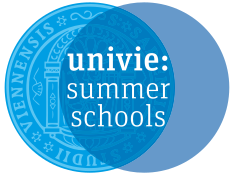
lecturers

Dr. Gabriela Balladares
Consultant for Research and Analytics Solutions, Clarivate
Gabriela Balladares is the consultant for research and analytics solutions at Clarivate for the South of Europe. She is committed to supporting research managers, researchers, and librarians in their analysis of scientific publications output to shape their decision-making based on trusted and reliable data. Gabriela is an expert in bibliometrics, and her interests are focused on research integrity, research intelligence and how technology is changing the way in which research is conducted.

Dr. Nicola De Bellis
Bibliometric Office, University of Modena and Reggio Emilia, Italy
Nicola De Bellis is the coordinator of the Bibliometric Office and an adjunct professor of information science at the University of Modena and Reggio Emilia. He graduated in philosophy and obtained a PhD in the history of science in 1998, with a doctoral dissertation on Renaissance encyclopedias that was later developed into one of the first accounts of the history of citation analysis. Since joining a medical library in 2002, he has worked at the intersection of service-oriented and research-based interests in information science, history and philosophy of science. His work group currently supports research evaluation, open science activities, and gender-related projects at the University of Modena and Reggio Emilia, focusing primarily on advanced quantitative and qualitative analyses and reporting. He also collaborates with the CINECA consortium to develop nationwide bibliometric indicators within a CRIS environment.
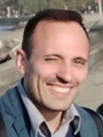
Dr. Simone Di Leo
Sapienza University, Italy
Simone Di Leo is an Assistant Professor at Sapienza University of Rome with a focus on quantitative economic analysis. He has a PhD in Industrial and Management Engineering. He is specialized in micro-data analysis and data quality in higher education institutions in Europe. His main research fields are scientometrics, non-parametric analysis and systematic literature reviews.
Personal website: https://simonedileo.github.io/
Google Scholar page: https://scholar.google.com/citations?user=uXEtOBsAAAAJ&hl=it
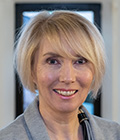
Dr. Elizabeth Gadd
Loughborough University, UK
Dr Elizabeth (Lizzie) Gadd is Head of Research Culture & Assessment at Loughborough University. She chairs the International Network Of Research Management Societies (INORMS) Research Evaluation Group and is a Vice Chair of the Coalition on Advancing Research Assessment (CoARA). She co-authored the UKRI-commissioned report, ‚Harnessing the Metric Tide: Indicators, Infrastructures & Priorities for UK Research Assessment‘ and was the recipient of the 2020 INORMS Award for Excellence in Research Management and Leadership.
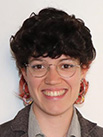
Dr. Elvira González-Salmón
Universidad de Granada, Spain
Elvira González-Salmón is a PhD candidate at Universidad de Granada. She holds a bachelors degree in International Relations (Universidad Complutense de Madrid) and a History of Politics and Society Masters (Utrecht University). They enjoyed a JAE-intro fellowship at the Instituto de Políticas y Bienes Públicos (IPP-CSIC). Her research focuses on gender inequalities within academia and how they affect research agendas. In 2024 they were a visiting scholar at the Delft Institute of Applied Mathematics (Delft University of Technology).

Dr. Jörg Hellwig
Senior Research Analyst, Elsevier
In his role as Senior Research Analyst, Dr. Jörg Hellwig focuses on analyzing the research performance and trends for public agencies and academic institutions. Recent customers for projects include the European Commission, the Dutch Ministry of Economic Affairs and Climate Policy, the Welsh Government, the Indian Department of Biotechnology and the Association of African Universities (AAU). Dr. Hellwig was part of the research team for She Figures 2018, 2021, and 2024.
Prior to that role, he worked as Customer Consultant Research Intelligence in Germany, the Netherlands, South Africa and the UK, responsible for supporting the adoption and use of SciVal, Scopus and various analytical tools and solutions for research performance and planning. Working for more than fifteen years with higher education, corporate, and governmental institutions, he has a thorough knowledge of this sector in various countries. Dr. Hellwig holds a Ph.D. in Chemistry from Georg August University Göttingen in Germany with the subsidiary subject Communication Theory and Publicism. After that, he worked for almost ten years in pharmaceutical companies before he joined Elsevier.
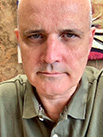
Dr. Victor Herrero-Solana
Universidad de Granada, Spain
Victor Herrero-Solana has served as a Library Science lecturer at the National University of Mar del Plata, National Autonomous University of Mexico (UNAM), El Colegio de México, and the University of Extremadura. He is currently a Professor in the Department of Information and Communication at the University of Granada. He serves as the head of the SCImago-UGR research group (SEJ036) and leads two research projects at regional and national levels. His extensive publication record includes research papers and reports in the fields of data visualization, science mapping analysis, bibliometrics, patentometrics, and media studies.
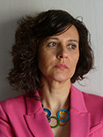
Dr. Irene Ramos Vielba
Consejo Superior de Investigaciones Científicas (CSIC), Spain
Irene Ramos Vielba is a scientist at the Consejo Superior de Investigaciones Científicas (CSIC), at the Instituto de Estudios Sociales Avanzados (IESA). She holds a PhD in Political Science and Sociology from the Complutense University of Madrid (UCM). Between 2019 and 2023 she was Senior Researcher at the Danish Centre for Studies in Research and Research Policy, Aarhus University (Denmark), where she developed research projects on social goal-oriented research funding and open innovation. Previously, at the international level, she conducted pre and postdoctoral research at different academic institutions: Real Colegio Complutense-Harvard University; Ostrom Workshop in Political Theory and Policy Analysis, Indiana University; Centre for Industry and Innovation Studies, University of Western Sydney; FATK, Universität Tübingen, and Manchester Institute of Innovation Research, University of Manchester. In Spain, Irene worked as a postdoctoral researcher at the Institute for Advanced Social Studies (IESA-CSIC), the Ideas Foundation and INGENIO (CSIC-UPV). Since 2007, her main line of research is science and innovation policy, with special attention to the collaboration between scientists and non-academic actors within the R&D ecosystems, including university-industry relations, knowledge transfer processes and the social relevance of research. The results obtained have been reflected in specialized reports. Since 2024 she is part of the National Agency for Quality Assessment and Accreditation (ANECA) and she is the Spanish representative at CoARA’s Steering Board.

Dr. Menico Rizzi
Università del Piemonte Orientale, Italy
Prof. Menico Rizzi was elected Rector of the University of Piemonte Orientale, Italy, in 2024. He has previously been a member of the Governing Board of the Italian National Agency for the Evaluation of Universities and Research Institutes (ANVUR) in the period 2020-2024 where he was in charge for coordinating the Agency’s activity in the medical area, Doctoral programmes and research on research assessment. In the period 2022-2024 he has been a member of the Steering Board of the global initiative CoARA. Full professor of Biochemistry at the University of Piemonte Orientale, he held the positions of Coordinator of the Evaluation Board of the Universities of Piemonte Orientale and Genova, Italy. Expert at the World Health Organization for the International Nonproprietary Name (INN) program and member of the task force for the development and implementation of the ‚African Union – European Union Innovation Agenda‘. Speaker/organizer in National and International congresses and in International schools under UNESCO patronage. Prof. Rizzi ’s research activity focuses on infectious diseases linked to poverty and resulted in more than 140 publications and in the award of competitive grants.

Dr. Jürgen Wastl
VP Research Evaluation and Global Challenges, Digital Science
Jürgen Wastl is VP Research Evaluation and Global Challenges at Digital Science and brings in his experience from his previous role leading the consultancy team supporting research institutions, funders, governments, and other institutions with research capabilities to make more and better use of data to inform their strategies and decisions.
Before joining Digital Science, he headed the Research Information team at the Research Strategy Office at the University of Cambridge with responsibilities for activities in research evaluation and reporting as well as managing and implementing software tools and research identifiers (e.g. ORCID) for Academics and Administrators and was responsible for the provision and implementation of analysis (including network and collaboration analysis) for Collegiate Cambridge.
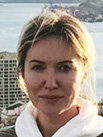
Galina Yakshonak
Research Inteligence Manager, Elsevier
Galina Yakshonak is a Subject Matter Expert at Elsevier, specializing in research analytics. She supports Elsevier clients worldwide in enhancing the effectiveness of analytical solutions for research development, strategic planning, and performance evaluation. With a career at Elsevier spanning since 2005, Galina has held roles as a Customer Consultant for Eastern Europe, Russia, and CIS countries, as well as in the marketing department. Prior to this, she worked in the Literature Acquisition Department at the Central Science Library of the Belarus Academy of Sciences (2001–2005).
Galina holds a degree in Social Pedagogy and Practical Psychology from the Belarus State Pedagogical University (M. Tank). She further expanded her expertise with a postgraduate degree in Library and Bibliography Sciences from the Belarusian State University of Culture and Arts. Additionally, she completed a Professional Retraining Program at Sechenov University, gaining qualifications in preventive and personalized health management. She has also studied Project Management based on the PMI PMBOK® Standard (PM Expert, PMI® Global R.E.P.).
Galina’s expertise in Elsevier’s analytical tools and her multidisciplinary background enable her to provide comprehensive, well-rounded support, effectively addressing the diverse needs of Elsevier users.
As president of the ISSI (International Society for Scientometrics and Informetrics) I highly welcome the esss initiative. The advantages and opportunities arising from collaboration and participation by members of several leading European institutes are manifold. Surely, students and workers in the field will benefit greatly, not only from the contents of the courses themselves but also by participating in a network of interested parties.
I wish all involved a successful partnership.

